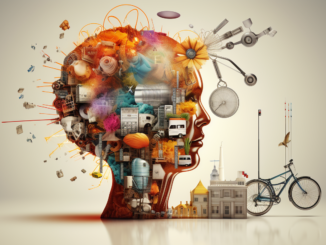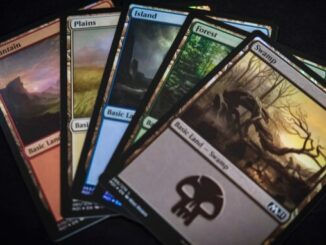
Computer games, good computer games, well-designed computer games, are learning games. These games constantly collect data about the game session and the player. Based on these data the difficulty of the challenges is adjusted and feedback mechanisms evolve from simply having a NPC telling the player what to do, to subtle clues in the environment.
When I read this in the book What Video Games Have to Teach Us About Learning and Literacy by James Gee, I must have had an expression on my face similar to all the characters in the books written by Sir Arthur Conan Doyle when Sherlock explains how he solved a crime ‘it just makes sense’ I thought.

Yet, in both cases, to solve those complex fictional crimes that took place in England between 1880 and 1914, and to understand that “all well-designed games are learning games” requires first that we are aware of the existence of the many parts that make up the systems. Second, we require a good understanding of how these parts work. And finally, we need a solid understanding of how these parts interact with and influence one another.
If we assume that “well-designed games as learning games” is itself a system, its constituent parts can roughly be listed as: a) games; b) how people learn; and c) how the education system works. And this system goes by many names:
- Game based learning
- Serious games
- Project based learning
- Active learning; and
- Gamified learning -among many others.
It’s no wonder that we feel overpowered by complex systems. There seems to be too much to be learned and our contribution may not even amount to much in the end. But it doesn’t have to be this way. And games can help us realise this.
Imagine creating a society from scratch; watching your decisions about law, the economy and politics shape society. How about creating basic organisms and watch them interact with the environment? All of this, and more, is possible through games that enable the player to manipulate many of the parts that make up the system. And by doing so, gain a much deeper understanding of the parts that make up a complex system.
Going one step further, and one step sideways, I decided to test this theory with university students. Instead of simply playing games, I designed a learning solution (a physical game, an evaluation and development framework, and a series of YouTube-style classes) that allowed students to create their own games. This is what I mean by ‘one step further’.
And when I said ‘one step sideways’ what I mean is that the games the students create are tabletop games (as opposed to digital games. There’s already extensive research on this area, including that done by Mitchel Resnick and his team).
In this experiment the students of The University of Economics Krakow were instructed and coached on the creation of games that would help to teach learning outcomes related to organisational behaviour. In the first round of prototypes, over 95% of the teams decided to teach and measure knowledge through the use of questions on cards*.
While a small number of teams changed, and improved, the way of coaching players on the learning outcome they worked with in their games, a large majority remained using questions on cards all the way to the last iteration.

One of the premises of this experiment is that by exposing students, in a controlled way, to the complex system of game development ** they work harder to master the learning outcome they chose to work with. You can see more about this research on this the TEDx talk.
To understand a topic well, to understand the parts that make it up and how these relate to one another, students need to go beyond abstract learning. We need to see how these parts work in the real world, James Gee calls this “situated learning”. But of course, in most cases this is not an option. And here is where games and simulations support education.
Games and simulations can provide learners an opportunity to immerse themselves in the topic they are studying. Games in education afford learners the opportunity to learn about the many parts that make up complex system.
** Product development and Agile techniques. Design Thinking. Communications and collaboration.
- Playtesting and the Ugly Baby Complex - 15th September 2021
- Change: a Game of Probabilities and Behaviours - 13th May 2021
- What Video Games Have to Teach Us about Learning - 13th January 2021





Be the first to comment